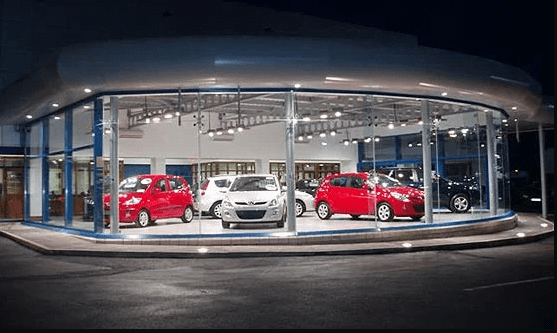The Evolution of Cars: A Look at How Technology and Innovation Have Changed the Automotive Industry
From the Model T to the Future of Self-Driving Cars
Introduction:
The automobile has been a symbol of freedom and mobility since the first car hit the road in the late 19th century. Over the years, the automotive industry has undergone significant changes, thanks to technological advancements and innovation. Today, cars are faster, more fuel-efficient, and safer than ever before, and we are on the brink of a new era of self-driving cars. In this article, we will take a deep dive into the evolution of cars, exploring how technology and innovation have changed the automotive industry.
The Early Days of Cars:
The first cars were powered by steam engines, but the technology was expensive, and the cars were slow and difficult to operate. It wasn’t until the early 20th century that the gasoline-powered internal combustion engine became the dominant technology, thanks to the invention of the electric starter and the assembly line. The Ford Model T, introduced in 1908, was the first affordable car for the masses, and it revolutionized the way people thought about transportation.
The Model T was designed to be simple, reliable, and affordable. It was a car that anyone could afford, and it quickly became the most popular car in America. The Model T was built using an assembly line, which allowed Ford to produce cars quickly and efficiently. The assembly line also made cars more affordable, as the cost of production was significantly reduced. The Model T had a top speed of 45 miles per hour and could travel up to 20 miles on a gallon of gas.
The Rise of Electric Cars:
Electric cars have been around since the early days of the automobile, but they never caught on due to the limited range of their batteries. However, with advancements in battery technology and concerns about the environment, electric cars are now becoming more popular. Tesla is at the forefront of this technology, and its Model S has been hailed as one of the best electric cars on the market. Other companies, like Nissan and Chevrolet, also have electric cars on the market, and more are expected to follow.
Electric cars are powered by batteries, which store electricity that is used to power the car’s motor. The biggest advantage of electric cars is that they emit zero emissions, making them much more environmentally friendly than traditional gasoline-powered cars. However, the biggest drawback of electric cars is their limited range. Most electric cars can travel only around 100 miles on a single charge, which makes them impractical for long-distance travel.
To address this issue, Tesla has developed a network of Supercharger stations, which allow Tesla owners to recharge their cars quickly and easily. Superchargers can provide up to 170 miles of range in just 30 minutes of charging. This has made electric cars more practical for long-distance travel, and it has helped to increase their popularity.
The Era of Muscle Cars:
In the 1960s and 70s, the focus of the automotive industry shifted to muscle cars, which were designed to be fast and powerful. Cars like the Ford Mustang, Chevrolet Camaro, and Dodge Challenger were some of the most iconic muscle cars of the era. However, they were also criticized for their poor fuel economy and environmental impact.
Muscle cars were powered by large V8 engines, which were designed to produce as much horsepower as possible. They were also heavy, which made them less fuel-efficient than smaller cars. The oil crisis of the 1970s, combined with growing concerns about the environment, led to a decline in the popularity of muscle cars.
The Evolution of Safety Features:
As cars became faster and more powerful, safety became a growing concern. Over the years, safety features like seat belts, airbags, and anti-lock brakes were developed to help prevent accidents and protect passengers. Today, cars are equipped with even more advanced safety features, like lane departure warning systems, blind-spot monitoring, and automatic emergency braking.
The Rise of Self-Driving Cars:
The rise of self-driving cars is the next frontier in the evolution of the automotive industry. Self-driving cars, also known as autonomous vehicles, are cars that can operate without the need for a human driver. They use sensors, cameras, and artificial intelligence to navigate the roads and make decisions about how to drive.
There are different levels of autonomy when it comes to self-driving cars. Level 0 means that the car has no automation, and the driver is responsible for all aspects of driving. Level 1 means that the car has some automated functions, like cruise control or lane departure warning. Level 2 means that the car has more advanced automation, like automated braking and acceleration, but the driver is still responsible for monitoring the road. Level 3 means that the car is capable of driving itself in certain situations, but the driver must be ready to take over at any time. Level 4 means that the car is fully autonomous in certain conditions, and the driver doesn’t need to be ready to take over at any time. Finally, level 5 means that the car is fully autonomous in all conditions, and there is no need for a human driver at all.
Self-driving cars have the potential to revolutionize the way we think about transportation. They could reduce traffic accidents, improve fuel efficiency, and make it easier for people to get around without the need for a car. They could also reduce the need for parking spaces and reduce the amount of time people spend commuting to work.
However, there are also significant challenges that need to be overcome before self-driving cars become mainstream. One of the biggest challenges is safety. Self-driving cars must be able to navigate the roads safely, and they must be able to make split-second decisions to avoid accidents. There are also legal and regulatory challenges, as laws and regulations must be updated to accommodate the new technology.
Another challenge is the cost of the technology. Self-driving cars require expensive sensors and cameras, and the software needed to operate them is also expensive. This means that self-driving cars are likely to be more expensive than traditional cars, at least in the short term.
Despite these challenges, self-driving cars are already being tested on the roads, and several companies, including Tesla, Waymo, and Uber, are investing heavily in the technology. It is likely that self-driving cars will become more common in the coming years, and they will eventually become the norm.
The automotive industry has come a long way since the first car hit the road over a century ago. Technological advancements and innovation have led to faster, safer, and more fuel-efficient cars, and we are now on the brink of a new era of self-driving cars. While there are still challenges that need to be overcome, the potential benefits of self-driving cars are significant. They could reduce traffic accidents, improve fuel efficiency, and make it easier for people to get around without the need for a car. As we continue to embrace new technology and innovation, the future of the automotive industry looks bright.
The Future of Cars:
The future of cars is constantly evolving and changing as new technologies and advancements continue to be made. With the rise of electric and autonomous vehicles, it is clear that the traditional automobile industry is in the midst of a major transformation.
One of the most significant developments in the future of cars is the transition to electric vehicles (EVs). Electric cars are powered by batteries that can be charged at home or at charging stations. EVs have several advantages over traditional gas-powered cars, including lower fuel costs, reduced emissions, and improved performance.
In recent years, many major automakers have begun to shift their focus to EVs, with some committing to an all-electric lineup within the next decade. This shift is being driven by increasing consumer demand for more sustainable and environmentally friendly transportation options.
Another major trend in the future of cars is the development of autonomous vehicles. Autonomous vehicles, or self-driving cars, have the potential to transform the way we think about transportation. They could reduce traffic accidents, improve fuel efficiency, and make it easier for people to get around without the need for a driver’s license.
While fully autonomous vehicles are still in the testing phase, many cars on the market today already have some level of autonomous features, such as automatic braking and lane departure warnings. It is likely that the technology will continue to evolve, and we will see more advanced autonomous features in cars in the coming years.
In addition to electric and autonomous vehicles, the future of cars also includes advancements in connected car technology. Connected cars are vehicles that are equipped with internet connectivity and can communicate with other cars, traffic lights, and other infrastructure. This technology has the potential to improve safety and efficiency on the roads, as well as enhance the overall driving experience.
Another aspect of the future of cars is the continued development of alternative fuels, such as hydrogen fuel cells. Hydrogen fuel cells generate electricity by combining hydrogen and oxygen, and emit only water as a byproduct. While the technology is still in the early stages, it has the potential to provide a sustainable and environmentally friendly alternative to traditional gasoline-powered cars.
As the automotive industry continues to evolve, it is clear that the future of cars will be defined by sustainable, efficient, and connected transportation. Electric and autonomous vehicles, connected car technology, and alternative fuels are just a few of the many advancements that are shaping the future of cars. As these technologies continue to evolve and become more widespread, it is likely that we will see a major transformation in the way we think about transportation and mobility.
Conclusion:
The evolution of cars is a fascinating story that has been shaped by technological advancements and innovation. From the early days of steam-powered vehicles to the rise of electric and self-driving cars, the automotive industry has come a long way. Today, cars are faster, safer, and more fuel-efficient than ever before, and we are on the brink of a new era of self-driving cars. As the industry continues to evolve, we can expect to see even more innovations and advancements that will change the way we think

MORE VEHICLES
GAUK has developed powerful aggregation software that is monitored by real, live humans and only sources clean data.AUCTIONS
Search ALL vehicles coming up for auction at the country’s leading sale rooms.CLASSIFIEDS
Each day we gather up-to-the-minute information from multiple car classifieds websites across the internetDEALERS
Search, save and compare car dealer vehicles across the entire UK.

Joel Marchant






